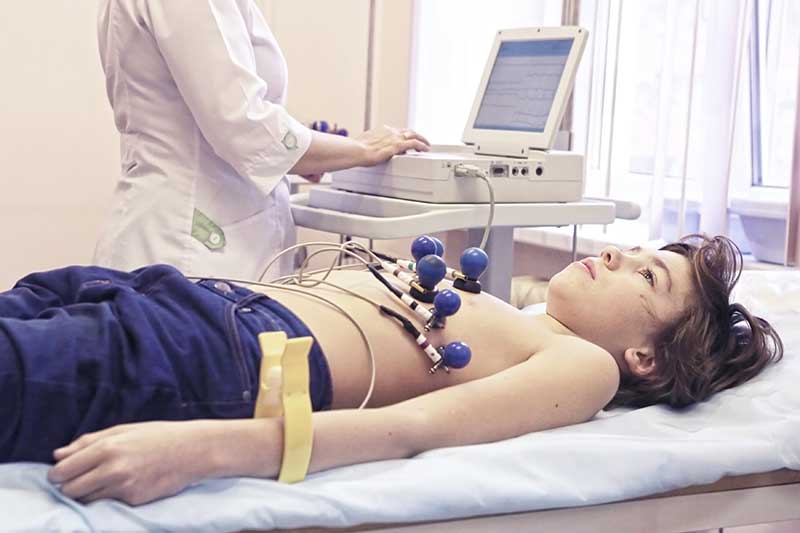“Discover the pathway to a rewarding healthcare career with our comprehensive guide on how to become an EKG Technician. Learn about the required skills, certifications, and training necessary to succeed in this vital medical field.”
Electrocardiogram (EKG or ECG) technicians are pivotal in the healthcare industry. These professionals operate sophisticated equipment that measures a patient’s heart performance. By becoming an EKG technician, you ensure a career in a rapidly growing field and make a difference in patient care and outcomes. This comprehensive guide outlines the steps and valuable insights necessary to launch a successful career as an EKG technician.
Learn How To Become An EKG Technician
By becoming an EKG technician, you ensure a career in a rapidly growing field and make a difference in patient care and outcomes. This comprehensive guide outlines the steps and valuable insights necessary to launch a successful career as an EKG technician.
Learn How To Become An EKG Technician
Explore our comprehensive guide on how to become an EKG Technician. Learn about education requirements, certifications, and career pathways to chart your future in healthcare.
EKG technicians are specialized healthcare professionals whose primary responsibility is to perform diagnostic tests that help monitor and assess cardiovascular health. These tests can detect heart conditions such as heart attacks, arrhythmia, and other diseases. EKG techs work directly with patients, explain test procedures, and may assist in interpreting the electrocardiogram results alongside physicians.
Educational Pathways
To become an EKG technician, you’ll need to follow specific educational paths tailored to the profession:
High School Education
A high school diploma or GED is the minimum education requirement for most entry-level positions in the field of healthcare, including EKG technicians. Focusing on science and mathematics can give aspiring technicians an academic advantage.
Post-Secondary Education or Training
Many vocational schools, community colleges, and technical institutes offer certificate programs specifically designed for EKG technicians. These programs typically last from a few months to a year and cover key topics such as anatomy, medical terminology, cardiovascular physiology, and the proper use and maintenance of EKG equipment.
Associate Degree
An Associate of Science in Cardiovascular Technology or a related field can provide more comprehensive training and potentially lead to more advanced career opportunities. These degrees offer broader coursework and include general education subjects.
Certification and Licensing
While not always mandatory, certification can boost your employability and credibility in the field. There are several organizations through which you can obtain certification, such as:
- The National Healthcareer Association (NHA)
- The American Society of Phlebotomy Technicians (ASPT)
- Cardiovascular Credentialing International (CCI)
Certification often requires completing an accredited EKG program and passing a certification exam. Additionally, maintaining your certification will typically involve continuing education to stay current with advancements in the field.
Some states may require EKG technicians to be licensed. Be sure to check the requirements specific to your state or country.
On-the-Job Training
On-the-job training is an excellent way to gain hands-on experience. Many employers offer training programs for new hires without requiring prior EKG experience. This practical experience is invaluable and can prepare you for certification or advance your skills further.
Essential Skills and Qualities
EKG technicians should possess a specific set of skills and qualities to excel in their role:
- Attention to Detail: Accurate readings are crucial for proper diagnosis and patient care.
- Communication Skills: Technicians must effectively interact with patients and healthcare staff.
- Compassion: Many patients may be anxious about the tests, and a friendly demeanor can help put them at ease.
- Technical Skills: Proficiency in operating complex equipment is a must.
- Physical Stamina: The job may require standing for long periods and sometimes lifting or turning disabled patients.
The Job Market and Career Outlook
The demand for EKG technicians is projected to grow in the coming years due to the aging population and the increased prevalence of heart disease. The U.S. Bureau of Labor Statistics groups EKG technicians with cardiovascular technologists and technicians, predicting a growth rate of about 5% from 2019 to 2029, faster than the average for all occupations.
Career Advancement
Experience as an EKG technician can lead to opportunities for career advancement. Some technicians may specialize further, obtain additional certifications, or pursue higher education to become cardiovascular technologists or even move into roles such as cardiac sonographers. Leadership roles like supervisory or management positions are also possibilities.
Networking and Professional Development
Networking with other professionals in cardiovascular technology can lead to job opportunities and professional growth. Professional organizations such as the American Society of EKG Technicians (ASET) provide a platform for networking, resource sharing, and continuing education.
Conclusion
Becoming an EKG technician requires dedication to education, proficiency in technical skills, and compassion for patient care. With a healthy job market and various opportunities for advancement, a career as an EKG technician promises stability and personal satisfaction.
If you’re passionate about cardiovascular health and looking for a rewarding career in the healthcare industry, following these steps can put you on the path to becoming an EKG technician. You’ll be able to provide essential services that aid in diagnosing and treating heart-related health issues, contributing to patients’ well-being and the healthcare system’s efficiency.





